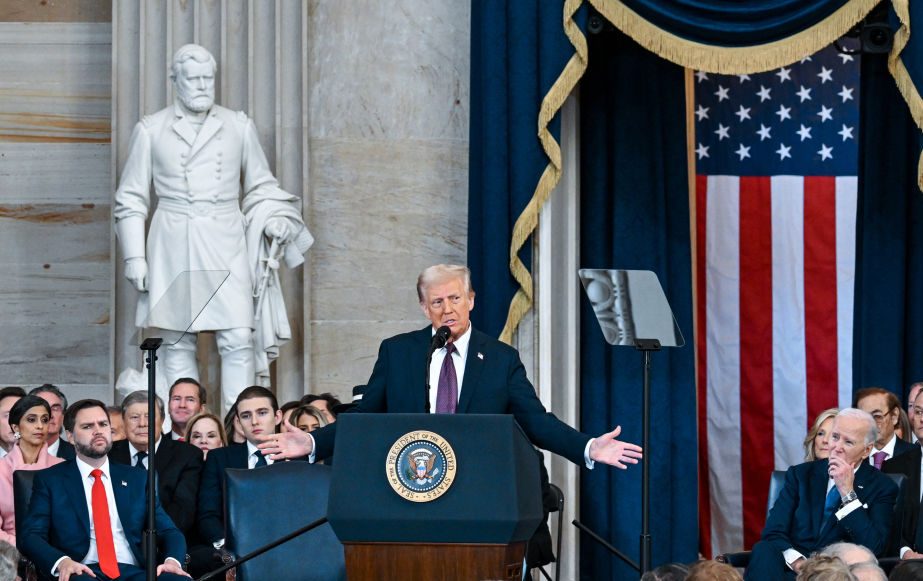President Donald Trump kicked off his second term yesterday (Jan. 20) with a barrage of executive orders on immigration, national security, trade, energy and health. Many of these orders are to repeal policies and regulations put in the place by the Biden administration. Trump’s economic policies, in particular, could have far-reaching implications for international trade and key domestic industries like oil and automobile. Here’s what he announced or implemented on his first day back in office:
Planned tariffs on Canada and Mexico
Trump told reporters yesterday he plans to impose a 25 percent tariff on goods imported from Canada and Mexico starting Feb. 1. But those tariffs are not set in stone just yet. Instead, the President signed an executive order directing federal agencies to study existing trade policies with Canada, Mexico and China, the three largest trade partners with the U.S.
On the campaign trail, Trump promised tariffs on all foreign countries, especially China. But he appears to be holding off that move, pending the outcome of the TikTok sale. During the campaign, Trump threatened tariffs of as much as 60 precent on China. But he has since tempered his stance. He said yesterday he would discuss the matter further with Chinese President Xi Jinping.
The upcoming tariffs on Canada and Mexico could potentially drive up the prices of goods imported from those countries, from cars to winter coats to avocado. Possible tariffs on China will affect the prices of electronics, furniture, toys and apparels.
The President ordered the government to assess the feasibility of creating an “External Revenue Service” to collect tariffs and duties. These funds are currently collected by Customs and Border Protection.
A 75-day lifeline for TikTok
As promised before the inauguration, Trump signed an order delaying the ban of TikTok in the U.S., giving the app’s Chinese owner 75 days to find a U.S. buyer. Yesterday, Trump said he would keep TikTok alive in the U.S. as long as a U.S. entity owns half of it. He said the app could be worth as much as $1 trillion and that interest in owning a piece of it is overwhelming.
Declare an energy emergency
Trump yesterday criticized the Biden administration’s policies restricting domestic oil drilling, which he believes hampered oil and natural gas production and led to high inflation. To reverse that, he signed orders to open up the Arctic National Wildlife Refuge in Alaska to oil drilling and reverse a ban on offshore drilling for 625 million acres of federal waters. “We will drill, baby, drill,” Trump said during his inauguration speech.
In addition, the President declared a national energy emergency, a first in the U.S. history, in an attempt to boost electricity production and override existing environmental rules.
Revoke Biden’s electric vehicle mandate
Specifically targeting the automobile industry, Trump revoked the Biden-era mandate to make electric vehicles account for half of new car production by 2030. He also began to claw back on regulations on tailpipe pollution from gas cars in a bid to encourage automakers to increase production overall, not just making EVs. These policies serve the purpose of “saving auto industry and keeping my sacred pledge to our great American autoworkers,” Trump told the nation yesterday. “In other words, you’ll be able to buy the car of your choice.”
Pull out of international organizations
One of the executive orders signed yesterday was to withdraw the U.S. from the Paris Agreement, an international pact signed by nearly 200 countries in 2016 to fight climate change. Another order was to withdraw the U.S. from the World Health Organization.
Launch DOGE
As expected, Trump signed an order to implement the Department of Government Efficiency (DOGE), a cost-cutting initiative led by Elon Musk. However, the newly created entity, which is not an official federal agency, has drawn at least four lawsuits from advocacy groups that accuse it of violating federal laws.

